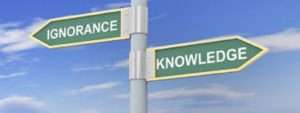The Volokh Conspiracy
Mostly law professors | Sometimes contrarian | Often libertarian | Always independent
My New Book Chapter on "Top-Down and Bottom-Up Solutions to the Problem of Political Ignorance""
It is now available for download on SSRN. The chapter is part of a forthcoming volume on "The Epistemology of Democracy," edited by Hana Samaržija and Quassim Cassam.
My forthcoming book chapter, "Top-Down and Bottom-Up Solutions to the Problem of Political Ignorance," is now available for free download on SSRN. Here is the abstract:
There is broad, though not universal, agreement that widespread voter ignorance and irrational evaluation of evidence are serious threats to democracy. But there is deep disagreement over strategies for mitigating the danger. "Top-down" approaches, such as epistocracy and lodging more authority in the hands of experts, seek to mitigate ignorance by concentrating more political power in the hands of the more knowledgeable segments of the population. By contrast, "bottom-up" approaches seek to either raise the political competence of the general public or empower ordinary people in ways that give them better incentives to make good decisions than conventional ballot-box voting does. Examples of bottom-up strategies include increasing voter knowledge through education, various "sortition" proposals, and also shifting more decisions to institutions where citizens can "vote with their feet."
This chapter surveys and critiques a range of both top-down and bottom-up strategies. I conclude that top-down strategies have systematic flaws that severely limit their potential. While they should not be categorically rejected, we should be wary of adopting them on a large scale. Bottom-up strategies have significant limitations of their own. But expanding foot voting opportunities holds more promise than any other currently available option. The idea of paying voters to increase their knowledge also deserves serious consideration.
The chapter builds, in part, on my previous work, particularly elements of my books Free to Move: Foot Voting, Migration, and Political Freedom and Democracy and Political Ignorance: Why Smaller Government is Smarter. But it also offers new assessments of several strategies for alleviating political ignorance, as well as a new way of categorizing such solutions. I particularly want to highlight the idea of paying voters to increase their knowledge levels, which has not gotten nearly as much attention as it deserves.



Show Comments (111)